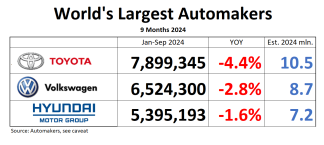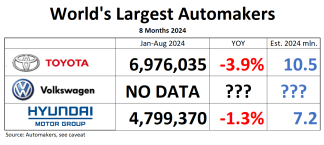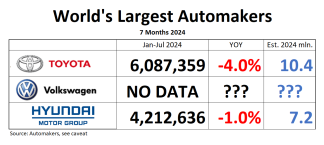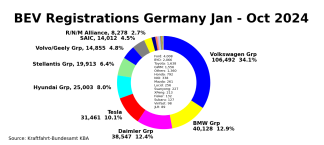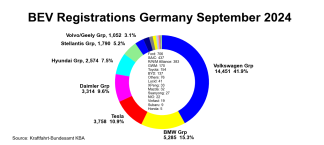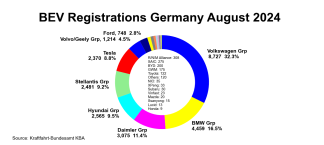
The biannual Tokyo Motor Show will open its doors to the public at 12:30 on Friday, October 30. Showgoers will see wares offered by all 14 Japanese manufacturers. From abroad, 17 manufacturers will put 27 brands on display. The big American makers will be AWOL as usual.
Today, the TPP ministerial meeting finally reached a deal in Atlanta. Detroit desperately tried to prevent that. In the past days, an old trope was trotted out in a last-ditch attempt to torpedo TPP: The closed Japanese car market. Japan in fact has one of the world’s most open car markets, mostly due to American pressure. Zero percent tariff. 5,000 cars per year and model can be brought in with next to no paperwork. Try that in the U.S.A., where Detroit’s cash cow, the light utility vehicle, is protected by a 25 percent tariff and a huge wall of other trade barriers. Japan can open its market as wide as can be, Detroit and its shills won’t stop their closed market lies.
The truth is, Ford and GM don’t even try selling their cars to Japan in meaningful numbers. Putting up a booth at Japan’s premier car show would at least be a sign of interest in raising your profile, and market share. At the Tokyo show, you will see how much GM and Ford want to sell in Japan: Not at all.
There is one blockade breaker: Jeep. Fiat enjoyed decent business in Japan. Its Alfas have a fiercely loyal following in the land of the meatball. Now in the hands of Fiat, Jeep finally can have its coming out in Tokyo. The rugged brand is by far the most successful U.S. import to Japan, single-handedly outselling all of GM 3:1 last year. Together with most of Fiat’s brands, Jeep will be at the Tokyo show, probably irking Ford and GM to no end.

The truth about closed markets
Japan’s vibrant import market is firmly in the hands of the “G3,” as Daimler, Volkswagen, and BMW are called in Japanese auto circles. Consider a historical preference to cozying up to Germany, and a certain reluctance when it comes to a country that nuked and firebombed you, and you understand why BMWs sell better in Japan than Buicks.
Those who still believe the unfairytale of Japan’s closed market should visit Radical’s booth at the show. The wares of the U.K. maker of hypermotorized machines are barely street-legal in Europe, but they will bring them to Japan, and they will try to sell a few, and nobody will stop them. In the U.S. , “compatibility with U.S. rules and regulations is something low-volume British sports car manufacturers have traditionally struggled with,” writes Motorauthority. In Japan, they need the barest of paperwork, as long as they sell less than 5,000 a year. There were 968 Cadillacs sold in Japan last year, along with 1,253 Chevys and 4,783 Fords. Detroit complains about regulations they never have to observe.
These simple truths do not stop Detroit’s propagandist from lying. Empty-handed when it comes to proof, they point at the low number of imports in Japan, implying that there must be closed markets, somewhere. The market share of imported vehicles in Japan actually is quite high. Some 10% of registered cars are imported. Including kei cars, a segment where no imports compete, the import share is around 7 percent. Some will ask: Now isn’t that kind of low? Not at all. In Europe, the share of cars imported from outside of the EU zone is around 4 percent. I haven’t heard Detroit complaining about a closed EU market.
That Japan is wide open to imports comes as no surprise when you live in Japan, or when you are in the car industry in Europe. In the U.S., Ford and GM can keep telling lies with impunity, while blogs unburdened by knowledge get hoodwinked. One would think U.S. bloggers would like more forbidden fruit and cheaper pickups. In that case, tear down trade barriers, and embrace competition.
The fact that TPP has been approved today does not mean that the desperate lies will end. TPP needs to be approved in Congress, and by lawmakers around the world. In a society where 54 percent of Republicans firmly believe that Obama is Muslim, you will always find a few Liberals who believe that wide open Japan is in fact closed.
